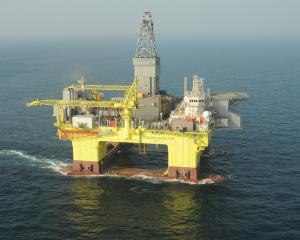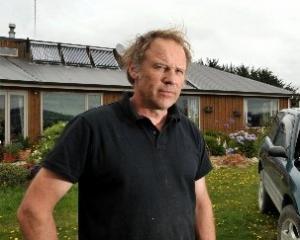
Foremost among these are the very real economic and environmental dangers associated with deep-sea drilling such as that which has been mooted for the Carrack/Caravel site off the coast of Dunedin.
These risks, of course, must be set against the potential riches of striking and harvesting "black gold".
Five weeks after the fatal blow-out in the Gulf that reduced the BP Deep Horizon operation to a blazing inferno, killing 11 workers and sending the rig to the bottom of the sea, oil is still gushing from pipes ruptured in the deep.
Numerous initiatives have been tried and found wanting.
Anger at the oil company's failure to meet deadlines in addressing the spill is on the rise.
In parts of coastal Louisiana, fishermen, oyster men and shrimp catchers - whose livelihoods are threatened by the oil now infiltrating the delicate coastal ecosystems - have begun to pray.
Well they might, for the task facing BP, the United States Government and various environmental protection agencies as they attempt to stem the viscous black liquid is almost superhuman.
The blown-out well drilled into the vast Tiber oil field in the Gulf hits the seabed about 1.5km below the surface.
At that depth the pressure is immense - tonnes per square centimetre.
Working to seal ruptured pipes on the ocean floor, according to an interview given to ABC News by BP America head Lamar McKay, was like "performing open-heart surgery at 1500m in the dark with robot-controlled submarines".
So it has proved.
Attempts to activate the supposedly "failsafe" valves where the pipeline exits the sea floor have failed; the plan to place massive dome structures over the leaks also went awry; the efficiency of a partially achieved gambit of inserting a pipe into the ruptured ocean-floor sleeve to siphon off the oil has been diminishing by the day; and results of a further plan to effect a "top kill" by pumping heavy fluids into the well to shut it off completely have yet to emerge.
In the meantime, the spill is fast shaping up to be the worst environmental disaster in US history.
All this is in stark contrast to the upbeat assurances given by BP to US Senate hearings last November.
The US Interior Department had proposed new rules to tighten regulation on off-shore exploration.
One of the company's Gulf exploration spokesmen told the hearings: "I think we need to remember that [offshore drilling] has been going on for the last 50 years, and it has been going on in a way that is both safe and protective of the environment."
There is a context - and a culture - out of which such attitudes arise.
As "safe" and "accessible" oil reserves - for example in the Middle East - have diminished, or proved more costly in other ways, the push to explore new frontiers of oil extraction have accelerated.
BP, which pioneered much of the North Sea extraction in the '60s and '70s, has styled itself as the leading international deep-sea oil company, a goal pursued with aggression, zeal and not a little hubris.
Its projects in the Gulf of Mexico were seen within the company as epitomising its elevated status and leading-edge engineering.
At the very least, the Deep Horizon catastrophe sounds a piercing warning on the risks of deep-sea drilling.
As an engineering manager at Andarko, one of BP's drilling partners, put it: "What we do at that depth in the ocean is similar to Nasa's space programme, but they get to do it without any pressure trying to attack them."
Andarko is to invest $30 million to help explore the Carrack/Caravel prospect, thought to have 500-million barrel potential, in the Canterbury Basin.
It lies in 1km of water about 80km off the coast of Dunedin.
The similarities with Deep Horizon bear some examination; as does the potential for disaster.
The risks, should such exploration proceed, must be balanced against the need vigorously to pursue alternative energy strategies, and the potential downsides of what could be a huge economic boon to the region.
A disaster of the Deep Horizon scale, leading to a major oil spill washing up on the Otago coast, would seriously disrupt the region's wildlife, tarnish the coast's string of pristine beaches, and destroy the burgeoning eco-tourism industry.





